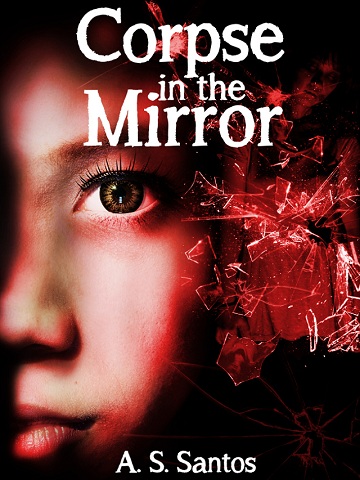Filtered By: Lifestyle
Lifestyle
Book review: Seeing what can't be seen in AS Santos' 'Corpse in the Mirror'
By REN AGUILA

'Corpse in the Mirror' is the second in A.S. Santos' YA supernatural series. Image from Flipside Publishing
Hence my interest was piqued by this series of e-books on the supernatural written by A.S. Santos, who recently gave a talk under the auspices of her publisher, Flipside Publishing, on her young adult-oriented stories. The first novel, "Voices in the Theater" (Flipside, 2013), was apparently one of the local e-book publisher’s big successes, and I had a chance to read it and the just-published sequel, "Corpse in the Mirror" (Flipside, 2013), over All Saints’ Day.
The stories deal with Samantha Davidson, a transplanted Filipina-American who is a student at a university which, because of one of the worst atrocities of the Second World War committed on its grounds, has its own “real-life” ghosts.
Sam discovers that she has a special ability that makes her a valued part of the Student Paranormal Research Group, who are engaged in some intriguing (and systematic) investigations into such activities. She can hear the voices of the “invisible ones,” and even other people’s thoughts. In "Corpse," she discovers that this ability has been stretched quite further into sight. The books are explorations not only into that psychic growth, but into the struggles of adolescence and resolving the traumas of the past.
Sam’s journey in this series is almost an expected one for those familiar with the young adult genre, but the setting and the positive yet unconventional portrayal of issues of spirituality and faith are what make this different. Santos describes places in the immediate neighborhood and beyond with uncanny accuracy (most notably the food and drink places where characters have meals and conversations), and for someone who has occasionally made his way into the area, such touches give an authentic feel to the story.
But what was interesting was how the series does not flinch from dealing with questions of faith in a straightforward way, while building into itself an agnosticism that saves this from straying into overtly moralistic territory. At the same time, it portrays the psychological field in a positive light, not merely as one that becomes involved in dire straits but as one of the means young people can cope with the struggles of growing up.
More than the first book, "Corpse" makes more explicit the fact that this fictional universe is at the heart of a struggle between the forces of good and evil, and the choices people make in light of that struggle. It goes into much darker realms than the first, and it will definitely be far more disturbing for some readers. But there is a place for fiction such as this, where ethical and spiritual issues are tackled with a good deal of honesty. It does so while presenting an entertaining tale of people who, perhaps like some of us, live very interesting lives.
The third book in the series will be published in 2014. — BM, GMA News
More Videos
Most Popular



